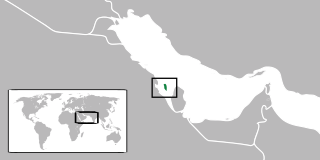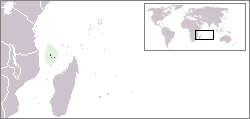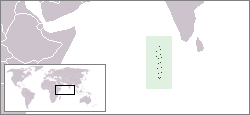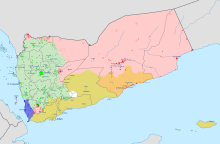
Lesbian, gay, bisexual, and transgender (LGBTQ) people in Iran face severe challenges not experienced by non-LGBTQ residents. Sexual activity between members of the same sex is illegal and can be punishable by death, and people can legally change their assigned sex only through sex reassignment surgery. Currently, Iran is the only country confirmed to execute gay people, though death penalty for homosexuality might be enacted in Afghanistan.

Lesbian, gay, bisexual, and transgender (LGBT) people in Mali face legal and societal challenges not experienced by non-LGBTQ residents. Although same-sex sexual activity is not illegal in Mali, LGBT people face widespread discrimination among the broader population. According to the 2007 Pew Global Attitudes Project, 98 percent of Malian adults believed that homosexuality is considered something society should not accept, which was the highest rate of non-acceptance in the 45 countries surveyed. The Constitution of Mali has outlawed same-sex marriage since 2023.

Lesbian, gay, bisexual, and transgender (LGBT) people in Iraq face severe challenges not experienced by non-LGBT residents. Openly LGBT individuals are subject to criminal penalties under the 2024 law making homosexual relations punishable by up to 15 years in prison with fines and deportation; the 2024 law also criminalizes and makes punishable by prison time promoting homosexuality, doctors performing gender-affirming surgery, and men deliberately acting like women. Discrimination is also widespread. Openly gay men are not permitted to serve in the military and same-sex marriage or civil unions are illegal. LGBT people do not have any legal protections against discrimination and are frequently victims of vigilante justice and honor killings.

Lesbian, gay, bisexual, and transgender (LGBTQ) people in the Islamic Emirate of Afghanistan face severe challenges not experienced by non-LGBT residents. Afghan members of the LGBT community are forced to keep their gender identity and sexual orientation secret, in fear of violence and the death penalty. The religious nature of the country has limited any opportunity for public discussion, with any mention of homosexuality and related terms deemed taboo.

Lesbian, gay, bisexual and transgender (LGBT) people living in Bahrain face legal challenges and discrimination not experienced by non-LGBT residents. While same-sex sexual activity was decriminalised in 1976, laws against indecency remain and are used to target gender and sexual minorities. Offences under these provisions allow for sentences of imprisonment, fines and deportation.

Lesbian, gay, bisexual and transgender (LGBT) people in the United Arab Emirates face discrimination and legal challenges. Homosexuality is illegal in the United Arab Emirates (UAE) and under the federal criminal provisions, consensual same-sex sexual activity is punishable by imprisonment; extra-marital sexual activity between persons of different sexes is also illegal. In both cases, prosecution will only be brought if a husband or male guardian of one of the participants makes a criminal complaint. The penalty is a minimum of six months imprisonment; no maximum penalty is prescribed, and the court has full discretion to impose any sentence in accordance with the country's constitution.

Lesbian, gay, bisexual, and transgender (LGBT) rights in Angola have seen improvements in the early 21st century. In November 2020, the National Assembly approved a new penal code, which legalised consenting same-sex sexual activity. Additionally, employment discrimination on the basis of sexual orientation has been banned, making Angola one of the few African countries to have such protections for LGBTQ people.

Lesbian, gay, bisexual, and transgender (LGBT) people in Comoros face legal challenges not experienced by non-LGBTQ residents. LGBT persons are regularly prosecuted by the government and additionally face stigmatization among the broader population.

Lesbian, gay, bisexual, and transgender (LGBT) people face widespread prosecution in Uzbekistan. Same-sex sexual activity between men is illegal in Uzbekistan. The punishment is up to three years in prison. Uzbekistan is one of just two post-Soviet states in which male homosexual activity remains criminalised, along with Turkmenistan.

Lesbian, gay, bisexual, and transgender (LGBT) persons in Turkmenistan face active discrimination and stigmatization compared to non-LGBT residents. Turkmenistan is one of the only two post-Soviet states where male homosexual activity remains criminalised, along with Uzbekistan.

Lesbian, gay, bisexual, and transgender (LGBT) people in Brunei face legal challenges not experienced by non-LGBTQ residents. Both male and female expressions of homosexuality are illegal in Brunei. Sexual activity between men is de jure liable to capital punishment, with de facto lesser penalties of imprisonment and whipping applied; sex between women is punishable by caning or imprisonment. The sultanate applied a moratorium on the death penalty in 2019, which was still in effect as of May 2023. The moratorium could be revoked at any time.

Lesbian, gay, bisexual, and transgender (LGBT) people are generally discriminated against in Libya. Homosexual activity is criminalised for both men and women within Libya, and homophobic attitudes are prevalent throughout the country. Since the fall of the Gaddafi regime in 2011, the discriminatory laws regarding homosexuality in Libya remain unchanged.

Lesbian, gay, bisexual, and transgender (LGBT) people in Qatar experience legal persecution. Sexual acts between males and between females are illegal in Qatar, with punishment for both Muslims and non-Muslims of up to three years in prison. For Muslims duly convicted in the sharia courts, a judicial sentence of capital punishment for homosexuality is a possibility, though it has never been imposed. Abuse such as beatings and torture, and forced "conversion therapy" have also been used by police and other authorities. There is no explicit corresponding prohibition of consensual sex between women, although sharia disallows sexual activity outside of marriage.

Lesbian, gay, bisexual, and transgender (LGBT) people in Somalia face legal challenges not experienced by non-LGBTQ residents. Consensual same-sex sexual activity is illegal for both men and women. In areas controlled by al-Shabab, and in Jubaland, capital punishment is imposed for such sexual activity. In other areas, where Sharia does not apply, the civil law code specifies prison sentences of up to three years as penalty. LGBT people are regularly prosecuted by the government and additionally face stigmatization among the broader population. Stigmatization and criminalisation of homosexuality in Somalia occur in a legal and cultural context where 99% of the population follow Islam as their religion, while the country has had an unstable government and has been subjected to a civil war for decades.

Lesbian, gay, bisexual, and transgender (LGBT) people in Uganda face severe legal and social challenges not experienced by non-LGBTQ residents. Same-sex sexual activity is illegal for both men and women in Uganda. It was originally criminalised by British colonial laws introduced when Uganda became a British protectorate, and these laws have been retained since the country gained its independence.

Lesbian, gay, bisexual, and transgender (LGBT) people in Senegal experience legal persecution. Senegal specifically outlaws same-sex sexual acts and, in the past, has prosecuted men accused of homosexuality. Members of the LGBT community face routine discrimination in Senegalese society.

A sodomy law is a law that defines certain sexual acts as crimes. The precise sexual acts meant by the term sodomy are rarely spelled out in the law, but are typically understood and defined by many courts and jurisdictions to include any or all forms of sexual acts that are illegal, illicit, unlawful, unnatural and immoral. Sodomy typically includes anal sex, oral sex, manual sex, and bestiality. In practice, sodomy laws have rarely been enforced to target against sexual activities between individuals of the opposite sex, and have mostly been used to target against sexual activities between individuals of the same sex.

Lesbian, gay, bisexual, and transgender (LGBTQ) people are generally discriminated against in the Maldives.

Lesbian, gay, bisexual, and transgender (LGBT) people generally have limited or highly restrictive rights in most parts of the Middle East, and are open to hostility in others. Sex between men is illegal in 9 of the 18 countries that make up the region. It is punishable by death in four of these 18 countries. The rights and freedoms of LGBT citizens are strongly influenced by the prevailing cultural traditions and religious mores of people living in the region – particularly Islam.

Capital punishment as a criminal punishment for homosexuality has been implemented by a number of countries in their history. It is a legal punishment in several countries and regions, all of which have sharia-based criminal laws, except for Uganda.





















